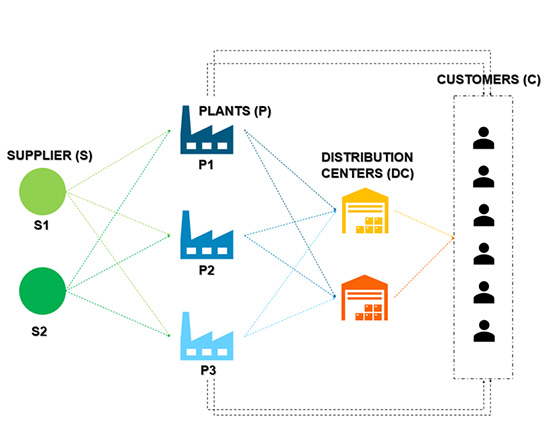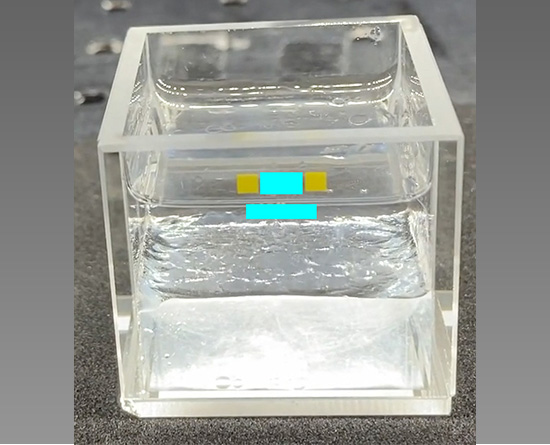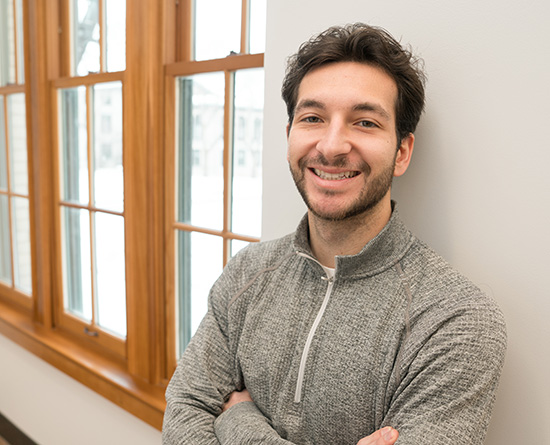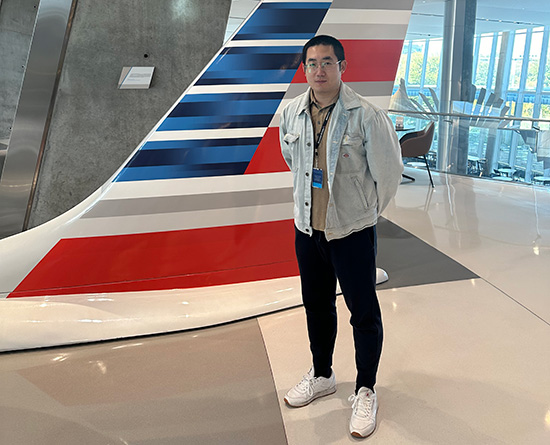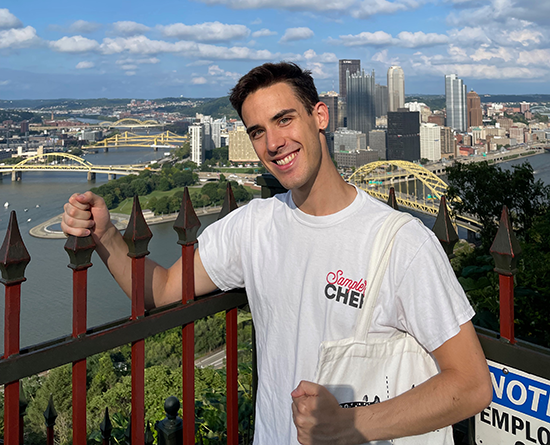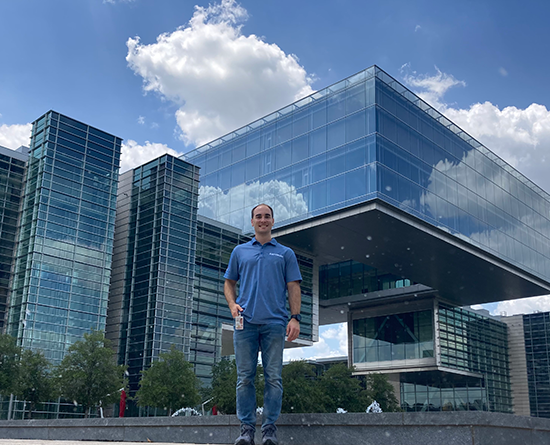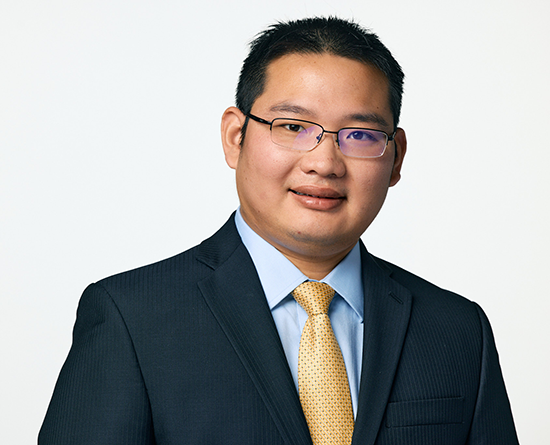The master’s degree programs in chemical engineering provide students with a deeper understanding of the fundamentals of chemical engineering and data science, with high-impact applications. In our research-intensive environment, students work alongside world-recognized academic leaders and exceptional peers, and reach their potential as technical leaders.
Graduates of the master’s programs excel at numerical methods for solving engineering problems, computational fluid mechanics and transport, process simulation, and optimization.
Master's programs
All chemical engineering master's degree programs are in-person on the Carnegie Mellon University campus in Pittsburgh.
Master of Science - Applied Study (MS-ChE-A)
The MS - Applied Study program equips students with practical skills for pathways in research and across industries. With both an independent project and a summer internship, the two-year program provides robust preparation for students interested in an industrial career.
Master of Science (MS)
With an emphasis on collaborative research, the MS program prepares students for research roles in industry or independent research through a Ph.D. The program typically takes a year and a half, with the required summer session focused on an independent project.
Master of Science in Computational Systems Engineering (MS-CSE)
The MS-CSE program combines the strengths of the Electrical and Computer Engineering and Chemical Engineering departments. Advanced training in computational hardware, algorithms, and software prepares students for careers in energy infrastructure, sustainable and circular processes, chemical process design and operations, and data science, among other fields. The program typically takes a year and a half.
Master of Chemical Engineering (MChE)
The MChE program is for students interested in a fast track to new technical skills. The one-year program is coursework-based, with an emphasis on building computational expertise. Students interested in research can do a mini-project as an elective.
Master's in Artificial Intelligence Engineering-Chemical Engineering (MS in AIE-ChE)
The MS in AIE-ChE offers the opportunity to learn state-of-the art knowledge in artificial intelligence, bridging the gap between AI and chemical engineering processes. Graduates have the unique capability to use AI to solve challenging chemical engineering problems. The program typically takes a year and a half. It includes a mini research project and the option to pursue a summer internship.
Master of Biotechnology and Pharmaceutical Engineering (MS-BTPE)
The MS-BTPE program combines the strengths of our Biological Sciences and Chemical Engineering departments to offer advanced training for careers in biotechnology and pharmaceutical engineering in academia, government, or industry. The program typically takes a year and a half.
| Degree | Master of Science - Applied Study |
Master of Science |
Master of Science in Computation Systems Engineering |
Master of Chemical Engineering |
Master's in AI Engineering-ChemE |
Master of Biotech and Pharma Engineering |
|---|---|---|---|---|---|---|
| Time to degree | 2 years | 1.5 years | 1.5 years | 1 year | 1.5 years | 1.5 years |
| Summer session | Internship | Research | Optional research or internship | None | Optional research or internship | Optional research or internship |
| Coursework | 72 units (about 7 courses) | 72 units (about 7 courses) | 111 units (about 9 courses) | 96 units (about 9 courses) | 120 units (about 10 courses) | 108-117 units (about 9 courses) |
| Research experience | 2-3 semester independent project | 2-3 semester independent project | Optional research as elective credit | Optional research as elective credit | Required research as elective credit | Optional research for credit or thesis |
| Internship | Required | No | Optional | No | Optional | Optional |
Students need to seek their own internships. Enrollment in a master's program does not guarantee an internship. Available resources to help you in your internship search include Carnegie Mellon's Career & Professional Development Center.

Master's student spotlight: Victor Soria
Independent project: designing a chemical process to convert methanol and green hydrogen by-products into sustainable aviation fuels



